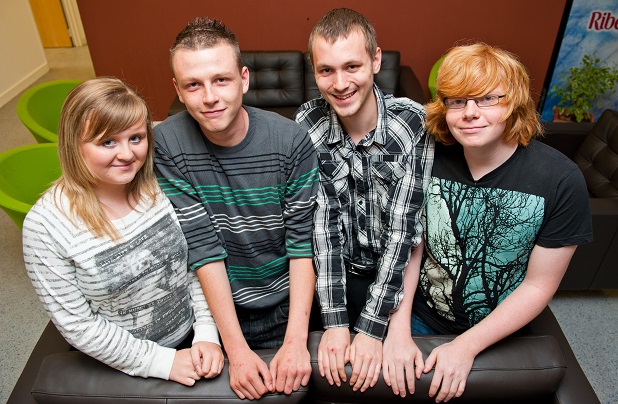 Subscribers Only
People
Subscribers Only
People 
Victoria Winckler takes a personal look at the opportunities available to the 20,000 young people in Wales who do not get five ‘good’ GCSEs and outlines what you can do to help.
Every summer the publication of GCSE results is accompanied by images of euphoric 16-year-olds, jumping for joy at their results. The Welsh Government will congratulate itself on the small increase in the proportion achieving five or more passes at grade C or above – the definition of ‘good’ results, while critics will comment on the glacial pace of improvement.
Rarely if ever is a thought spared for the four out of ten young people who do not make the grade, whether they fall short by a single mark or crash out completely.
My thoughts were with this group last summer more than most, because my daughter was one of those who got her results. Her education had been severely affected by a prolonged period of illness, and so there was a big question mark over what she might manage to achieve. The Bevan Foundation’s work on what Wales might be like in 2020 had already highlighted the challenge of school-leavers who do not get five good GCSEs, and having a child who could well have been in this group brought the issue very close to home.
What became very clear is that those five ‘good’ GCSEs are a golden ticket
GCSE results are a powerful filter at age 16. For a start, five ‘good’ GCSEs including English and Maths are essential to progress to study A levels, with most school 6th forms and colleges demanding five GCSEs from prospective students. Indeed, we found that some A level subjects demand a grade A or B for entry, ruling out those students who had been entered for foundation-level GCSE where the highest grade awarded is a C. This prevented my daughter – and doubtless others – pursuing some subjects.
Of course there’s the option of resits for young people who want to try again, except that many areas don’t offer resits in all subjects. For example in Merthyr Tydfil resits are only available in Maths and English. So if you fail, say, history that’s it.
So if a 16-year-old cannot study A levels what can they do?
For many young people, the alternative is to pursue a more vocational course. But here too the requirement for five GCSEs raises its head. Entry to many level 3 BTECs needs four or five GCSEs at grades A-C, while level 2 BTECs and similar qualifications typically ask for at least two GCSEs at grade C.
For someone without a couple of grade Cs, the only options available in our local college were level 1 qualifications in construction, creative industries, hairdressing or childcare. These options don’t appeal to everyone, and mostly lead to very low paid work in the future.
What about apprenticeships or traineeships?
Apprenticeships and traineeships are flavour of the month and for many young people (and increasingly, older people too) offer a good route into training and work. But they’re rather harder to obtain than the publicity might have you believe – when I checked just before uploading this post there were just three apprenticeships in Merthyr Tydfil offered on the Careers Wales website (and two of them have a closing date of today). And while there are some good quality apprenticeships on offer elsewhere, a substantial number are for roles in care, retail and hospitality – notoriously low-paid sectors where progression is difficult.
The important point is this
Whether or not someone gets five good GCSEs has become a critical determining factor in the route into learning and work. Get them, and the pathway is typically into A level study and a degree. Fail by a small margin, and at best the route is into BTEC and perhaps into higher education. Otherwise, the options are a limited range of apprenticeships or training for low-paid work. Age 16 appears to be the critical point where an individuals’ future is decided.
While I have had a personal interest, nearly 20,000 young people were faced with these limited options last summer. And around this number of young people are likely to be in this position for many years to come. This is why our latest project aims to find new ways of increasing the range and number of opportunities for people who – for whatever reason – didn’t get the golden ticket of five good GCSEs. We want to explore in more depth the options that are available at present, and find new ways of enabling young people to realise their potential.
We need your help to do this – we are seeking expressions of support and donations of all sizes to enable us to carry out this vital work. If you can help you can give via our fundraising page at www.fundit.buzz/BetterFutures
As for my daughter, thanks to the help of her teachers, some private tuition, better health and her sheer hard work and determination, she managed to get 5 GCSEs and is now studying A levels.
Victoria Winckler is Director of the Bevan Foundation.


